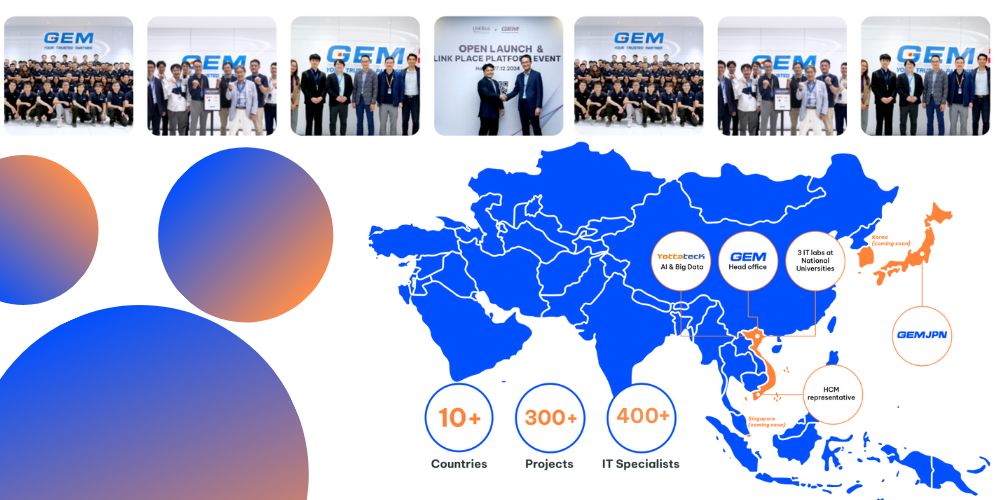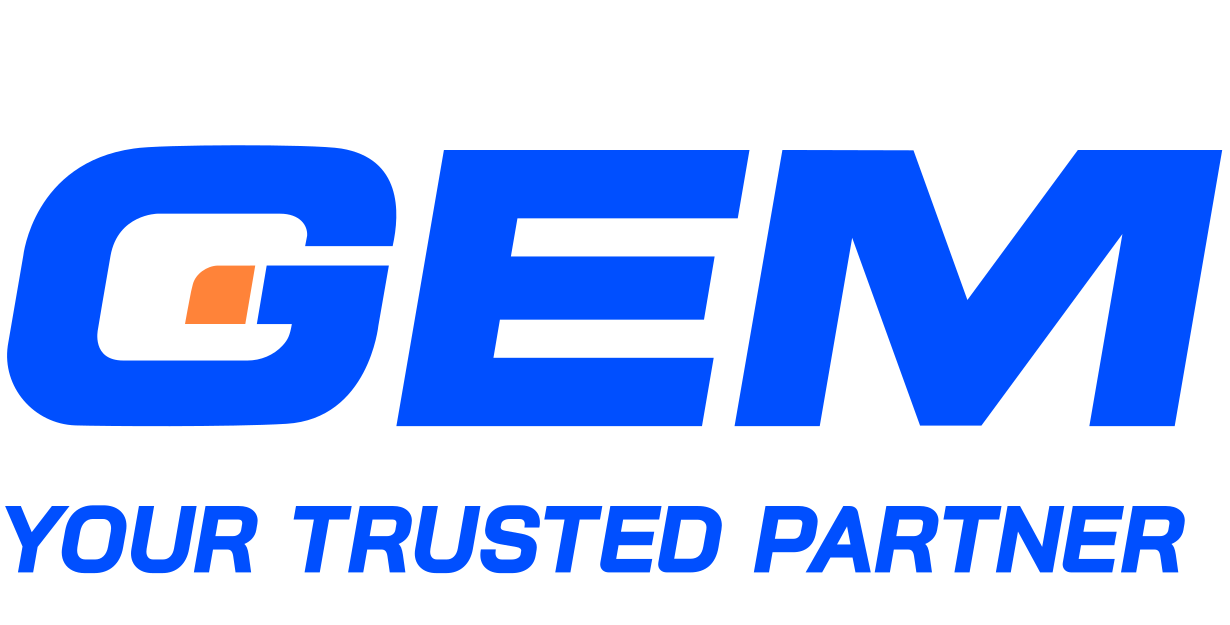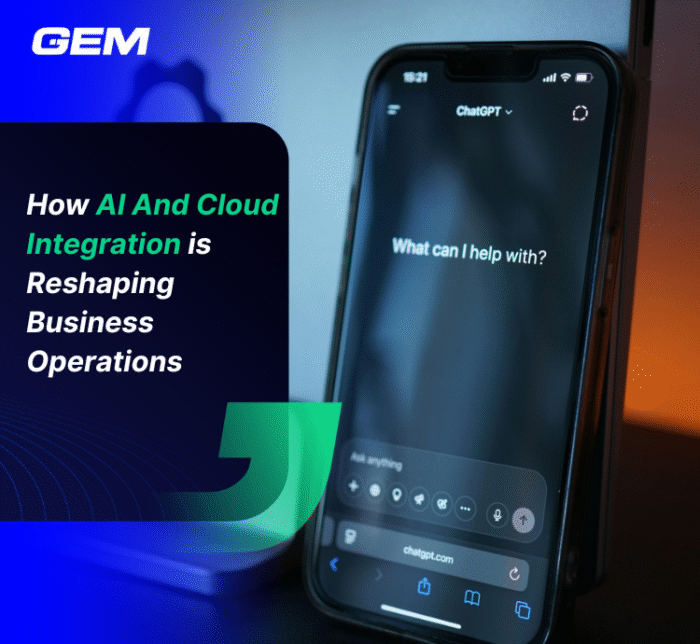Contents
- The Rise of AI, Data, and Automation in Consulting
- Technology and AI: Redefining the Consulting Toolkit
- Rethinking Client-centric Approach in The Future of Consulting
- Shifting Toward Domain-Focused Consulting
- Ethics and Responsibility in a Digital Era
- The Future of Consulting: Opportunities and Challenges Ahead
- GEM Corporation – Your Reliable Consulting Partner
- Takeaways
The future of consulting is being shaped by a wave of structural shifts, driven by technology, evolving client demands, and rising pressure for measurable impact. Firms are rethinking traditional models in favor of more collaborative, digitally enabled, and hands-on approaches.
As AI and data tools become embedded in the consulting workflow, the role of the consultant is expanding to include strategist, technologist, and co-executor. This transition calls for deeper specialization, stronger client integration, and a renewed focus on ethical delivery. In this landscape, adaptability and clarity will define who leads and who falls behind.
The Rise of AI, Data, and Automation in Consulting

AI, data, and automation are reshaping the consulting model. They are changing how firms deliver insights, structure projects, and interact with clients. These tools now contribute to core activities, such as opportunity sizing, risk modeling, and operational diagnostics.
- The global generative AI market reached US$13.7 billion in 2023, with forecasts pointing to US$165 billion by 2032 (CAGR 34.6%). Venture investment in this space surged 425% between 2020 and 2022.
- In parallel, the big data market was valued at US$327.26 billion in 2023 and is expected to grow at 14.9% annually through 2030.
These figures reflect a shift in client expectations – away from static advice and toward data-driven, adaptive delivery models. Consulting firms are responding by embedding AI into service lines, automating analytics, and building hybrid teams that combine human expertise with machine intelligence.
Explore more: Top 9 Cloud-Based AI Development Platforms
Technology and AI: Redefining the Consulting Toolkit

1. AI in Research and Strategy Development
AI systems are being used to scan market signals, identify operational inefficiencies, and test assumptions. Consultants rely on these tools to build faster diagnostic baselines and simulate strategic scenarios. This supports real-time decision-making and shortens the time between insight and execution.
Generative AI is being applied to support ideation, content creation, and model generation. But the value has shifted from solely output volume. It’s in how consultants assess quality, refine results, and apply them to specific business problems.
2. Automation and Workflow Efficiency
Automation is reducing the manual burden in data preparation, reporting, and document generation. Workflows that once took days now run on pre-configured scripts, freeing up time for higher-value activities. Project teams are deploying modular toolkits that plug directly into client systems, allowing for faster rollouts and easier integration.
This shift is expanding the role of consulting into more continuous, embedded support, especially in areas like finance operations, procurement, and customer analytics.
3. Digital Collaboration Models
The traditional model of on-site delivery is being replaced by digital-first project environments. Teams now collaborate through shared platforms, workspaces, and dashboards, allowing clients to track progress, provide input, and test outputs in real time.
This structure supports distributed teams, flexible engagement formats, and faster iteration. It also lowers delivery costs and opens access to global talent pools.
4. Data Literacy and Generative AI Integration
As data volumes grow, consultants are being asked to go beyond surface-level analysis. They must understand how models are trained, what inputs drive certain outcomes, and where bias may exist. This requires fluency in data tools and the ability to explain outputs in clear business terms.
Firms are investing in upskilling initiatives to build this capability across roles, not just in analytics teams, but in strategy, operations, and transformation practices.
Rethinking Client-centric Approach in The Future of Consulting

Firms are moving toward delivery models that prioritize active involvement, continuous access, and measurable outcomes. Traditional boundaries between advisor and operator are becoming less relevant as clients seek partners who stay engaged across the full lifecycle of a project.
More Skin in the Game
Consultants are working more closely with client teams during execution, not just at the strategy stage. This shift supports stronger alignment and builds trust through shared accountability. It also reinforces the expectation that consultants contribute to results, not only recommendations.
Open Consulting
Clients are looking for transparency in how solutions are built. This includes access to frameworks, models, and technology platforms. Open ecosystems allow teams to Engagements are being evaluated on business impact rather than presentation quality. Clients expect advisors to deliver capabilities that persist after the engagement ends. This includes tools, processes, and decision rights that improve internal performance. The focus is shifting toward outcomes that can be tracked, reused, and scaled.
Flexibility and Agility
Consulting models are evolving to meet shifting client priorities. Firms are adopting modular delivery formats that can adjust to new data, market signals, or stakeholder input. This approach promotes faster decision cycles and allows for continuous adjustment without restarting full project scopes. Imagine What You Could Achieve with AI Streamlining Your Operations Transform your operations with precise, AI-driven workflows. From reducing errors to improving speed, achieve operational excellence and drive sustainable growth.
Shifting Toward Domain-Focused Consulting
As business environments grow more complex, consulting firms are aligning their capabilities around defined knowledge areas. Clients are no longer looking for broad guidance. They want advisors with deep understanding of specific sectors, technologies, and regulatory landscapes.

Targeted Expertise in High-Growth Areas
Advisory demand is rising in fields such as AI, cybersecurity, sustainability, and ESG. Clients expect consultants to bring hands-on experience, credible methods, and a clear point of view. Generalist models are losing relevance in programs that require domain fluency and regulatory awareness. Firms with focused practices are gaining traction in board-level conversations and long-term transformation mandates.
Sustainability and ESG
Sustainability is now embedded into operational strategy, compliance, and investor-facing reporting. Consultants are helping clients interpret new ESG standards, structure data for disclosures, and redesign supply chains. These programs require technical depth, industry knowledge, and the ability to align multiple stakeholder agendas.
Cybersecurity and Strategic Decision-Making
Digital risk continues to grow in both volume and complexity. Firms face pressure to modernize systems while protecting against operational and reputational threats. Consultants are stepping in to assess security maturity, guide architecture decisions, and support incident response planning. At the executive level, data-driven insights are being used to inform capital allocation, risk mitigation, and strategic priority setting.
Ethics and Responsibility in a Digital Era
As digital technologies take on a larger role in business decision-making, consulting firms are being asked to guide clients through not only capability building but also the ethical dimensions of data and AI use. The scope of responsibility now extends into governance, transparency, and long-term impact. Make your digital transformation seamless and future-ready Accelerate your business growth with zero-disruption modernization services. Maximize the value of your current infrastructure, streamline processes, and cut expenses.
Responsible AI Advisory
Clients are seeking structured guidance on how to deploy AI systems within ethical boundaries. This includes addressing concerns around algorithmic bias, data privacy, and accountability. Consultants are developing governance models that define how AI outputs should be audited, who owns decision rights, and what controls are in place to prevent misuse.
Frameworks now include both technical checks and organizational safeguards. These range from model validation protocols to cross-functional review boards. The goal is to make AI systems not just compliant, but explainable and adaptable under scrutiny.
Sustainability as a Strategic Priority
Responsibility also includes environmental and social impact. Consulting firms are helping clients incorporate sustainability into growth, operations, and capital planning. This work includes supply chain restructuring, product lifecycle analysis, and investment strategy alignment.
Regulatory pressure is accelerating this trend, but so is stakeholder demand. Investors, customers, and employees are holding firms accountable for long-term commitments. Consultants are expected to translate these pressures into practical actions that support both compliance and competitiveness.
The Future of Consulting: Opportunities and Challenges Ahead

Consulting firms are entering a period of structural change, driven by shifts in client expectations, new delivery models, and the integration of advanced digital capabilities. The path forward includes both upside potential and operational risk. And only those that can align strategy with these shifts gain the upper hand.
Opportunities
Recurring Services and Digital Products
Consulting firms are building revenue streams around ongoing service delivery. Subscriptions to digital platforms, diagnostics, and toolkits allow clients to access expertise continuously, rather than through one-off engagements. These offerings support more stable revenue cycles and align with client demand for flexibility.
Managed Services and Co-Delivery Models
Firms are entering long-term roles where they contribute directly to execution. These arrangements involve shared accountability, deeper integration with internal teams, and sustained involvement in day-to-day operations. This model supports closer alignment with client outcomes and extends the role of consultants across the full transformation lifecycle.
Cross-Sector Partnerships
Collaborations with technology companies, academic institutions, and startups are expanding access to advanced tools and research. These partnerships allow consulting firms to stay close to emerging capabilities while also addressing gaps in internal capacity. Joint development efforts are also helping firms respond faster to specialized client needs.
Challenges
Talent Requirements at Scale
As service models evolve, firms are under pressure to grow skill sets across domains such as AI, cybersecurity, and ESG. Traditional training models may not scale to match delivery needs. At the same time, workforce expectations are shifting—flexibility, autonomy, and purpose are now central to talent acquisition and retention strategies.
Data Security and Regulatory Exposure
AI-led consulting introduces new forms of risk. Projects that rely on proprietary data, external models, or third-party tools require stronger controls. Firms must build safeguards that address privacy, model transparency, and compliance, especially in regulated industries.
Client Sensitivity to Cost and Value
Clients are raising questions about pricing models that don’t tie directly to impact. Standard deliverables such as slide decks or frameworks are no longer viewed as sufficient. Firms are being asked to quantify outcomes, share working models, and clarify how value will persist after the engagement ends.
Maintaining Credibility in Complex Ecosystems
As firms work across multi-party environments, the ability to maintain objectivity is under greater scrutiny. Clients expect transparency in methods, decision-making, and partner dynamics. The role of the consultant is shifting from neutral advisor to embedded operator, requiring new forms of governance and trust-building.
GEM Corporation – Your Reliable Consulting Partner

GEM Corporation is a global IT service provider and consulting partner with a focus on turning complex business challenges into scalable digital solutions. We’ve supported organizations across the U.S., Europe, Asia-Pacific, and Japan through strategy-led technology advisory and execution.
Our consulting expertise spans digital strategy, enterprise architecture, data transformation, and AI integration, grounded in industry insight and a solution-first approach. With over 500 engineers and consultants, we deliver technology programs that align with long-term business goals and operational realities. Stop trying to find the dots. Let us help you connect them! With GEM as your ServiceNow Partner, accelerate delivery, reduce complexity, and gain a competitive edge in today’s fast-changing market.
Takeaways
The future of consulting lies in delivering value through embedded problem-solving, not just episodic advice. Firms that restructure their delivery models, build domain-specific talent, and align with lasting client outcomes are better positioned to lead. Speed, transparency, and relevance now matter more than legacy frameworks. As business environments grow more dynamic, consulting must evolve into a continuous, insight-driven partnership – one that moves with the client, not just for the client.
To explore how your organization can adapt to the future of consulting, connect with GEM Corporation’s strategy and technology experts. Start a conversation with our team to design consulting models that align with execution, scale, and measurable business outcomes.





